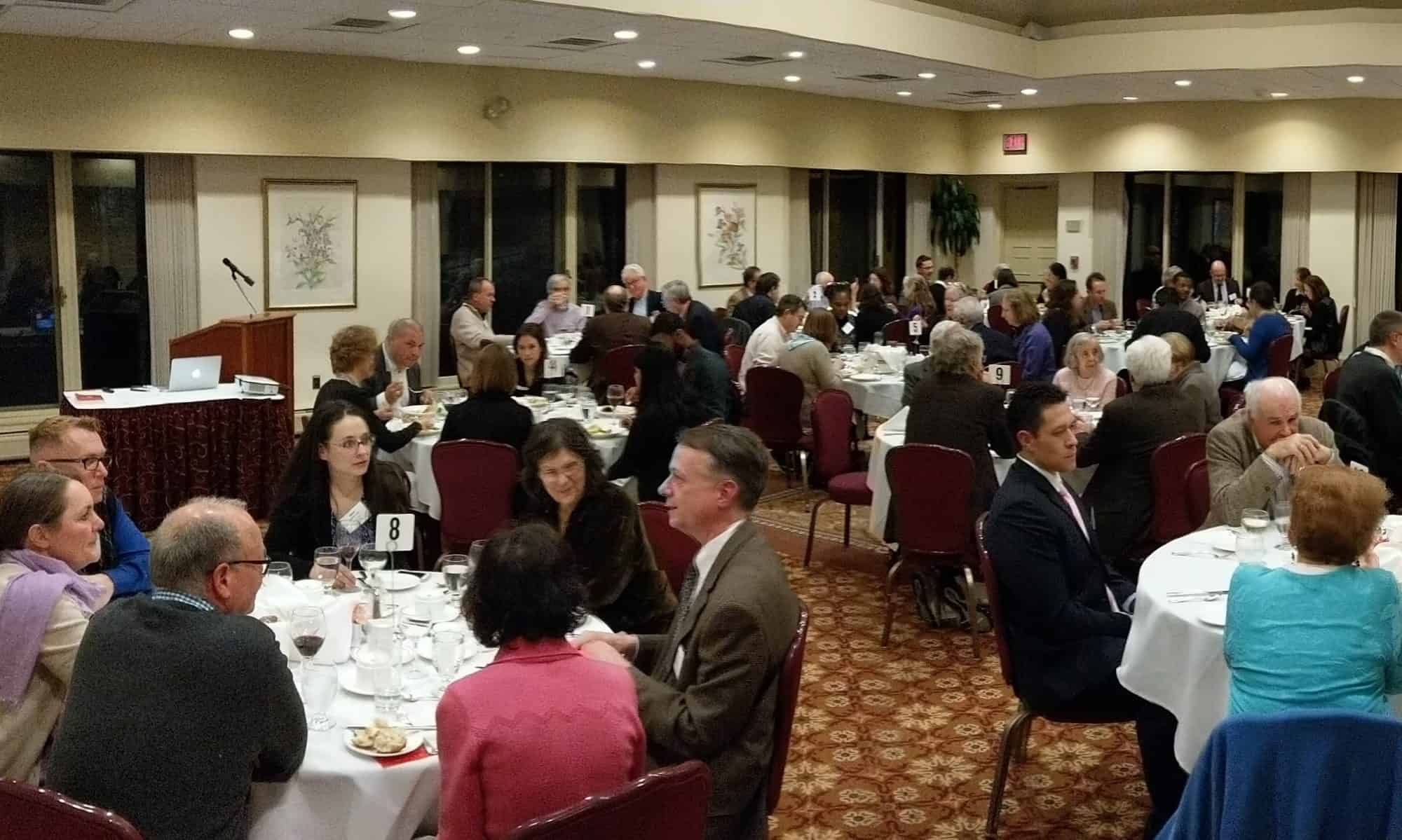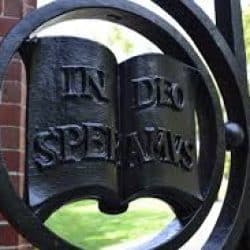“More than that. The issues that were raised help me better understand myself, my place in the world, the world around me and so on.” –Prof. of Slavic Studies
“I found this “meeting of minds over dinner” to be a remarkable kind of discourse space. Unlike a straightforward lecture, which people tend to engage with primarily intellectually and often combatively, this dinner/talk allowed for a kind of fellowship and mutual respect to develop (the sharing of food is a basic human bonding experience) that held a space for differences of opinion to co-exist and for new friendships to form. This sort of networking experience was very powerful!” –Prof. of Religious Studies
“Two educated, informed voices with contrasting opinion made for very lively discussion…Religious people always have to test themselves, ask questions and see if they can come out on the other side.” –Colleague
“I thought it was great and it provided a safe space to have some interesting conversations with other faculty that I certainly would have never had otherwise.” –Prof. Applied-Mathematics
“Stimulating discussion. Great food!” — Prof. of Ancient History
“My group was very diverse and our conversation took us from ancient Hebrew to Lebanon to fostering children and back (!). This captivated my interest in growing relationships with others who may not necessarily agree with my outlook, but are open to discussion and mutual respect. The conversation informed me and brought a better understanding of other belief systems, which I can now take and teach in my own academic world.” –Senior Lecturer, Business & Management
“I thought it was excellent–venue, discussion, ambience. Collegial group.” –Prof. of Engineering
“I really appreciated the way that you divided the time. The informal gathering at the beginning set the tone very nicely and allowed people to introduce themselves to each other and meet new people. The speeches at the beginning planted common themes for conversations among the various tables, and the extended table discussion time allowed each table to focus on the conversations that arose…The gathered conversation at the end was really well done, allowing common themes to arise from the evening. Thank you!” –Staff, The Sheridan Teaching Center
“I really appreciated the way that you divided the time. The informal gathering at the beginning set the tone very nicely and allowed people to introduce themselves to each other and meet new people. The speeches at the beginning planted common themes for conversations among the various tables, and the extended table discussion time allowed each table to focus on the conversations that arose.”
“The insight that I am taking back to my campus and to my undergraduate students is to better explain the relationship between religion and science, (and so) I’m going to revise my introduction to my anthropology lecture notes.” –Professor at Bridgewater State University
“Our conversation was very rich, the best I have experienced in any of the roundtables I have attended. The group was wonderfully diverse and interactive. Thoughts were wide-ranging and there was a sense of good will and common purpose (understanding) within the group.” –Local Minister
“It was a great event. Very stimulating intellectually and personally.”
“Last night’s event was both stimulating (on an intellectual level) and community-affirming. I was thrilled to get to know some people from the radically heterogeneous set of attendees. Both talks were well presented and thought-provoking.
I especially liked that the two speakers were themselves diametrically opposed in their positions (a Bible-believing Christian and an agnostic but free-thinking atheist.)
But my favorite part of the evening was talking with my table-mates. Ordinarily I wouldn’t have had any opportunity to talk with either a final year Ph.D. student in religious studies or a professor of anthropology at Bridgewater State, but we had a warm and informative conversation. Thanks for bringing people together in this way!”
“These Roundtables provide me (a scientist by training) a window to other types of argument and reasoning. It is where scholars from two seemingly orthogonal fields (religion and science) engage. The environment is warm and safe. I feel comfortable asking difficult questions without worrying about these being misconstrued and I always get genuine replies.”
“The discourse around thought provoking topics is important to maintain our collective societal conscious for the intellectual process. Something that is so marginalized in our culture today.”
“These events generally encourage me in that they demonstrate that religion is not only compatible with science but personally important in the lives of many respected scientists. In grad school at Brown, I got the feeling most students and faculty in my department were agnostic or atheist. This series provides a community and forum for sharing religion-related experiences and ideas with other scientific minds.”

